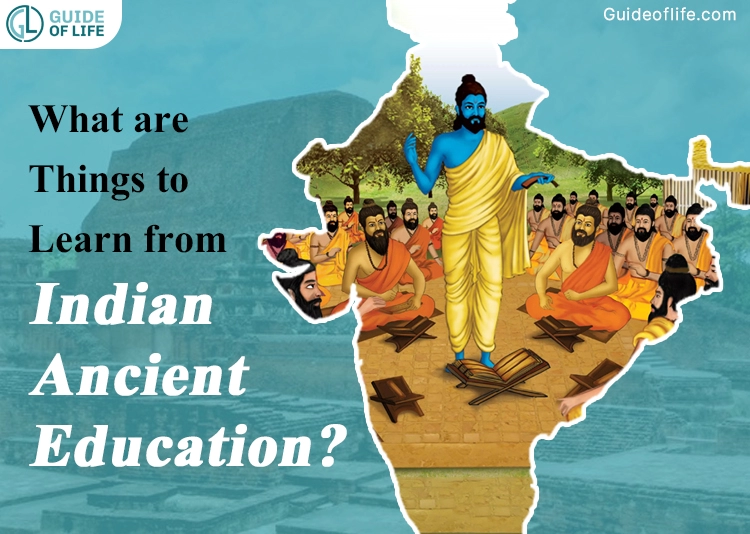What are Things to Learn from Indian Ancient Education?

Do you like to learn new things? I’m sure you do. Learning is fun and exciting. But did you know that people have been learning for a long time? Even before schools and books, people learned from each other and the world around them.
Different places have different ways of learning. Some places use letters and numbers, pictures and symbols, and some use sounds and gestures. Some places have big classrooms and libraries; some have small groups and temples, and some have no buildings. Some places have strict rules and tests; some have flexible methods and projects, and some have no formal system.
One of the oldest and best ways of learning is Ancient Indian Learning. India is a big and beautiful country with many different people and cultures. People in India have been learning for thousands of years and have a lot of wisdom and knowledge to share.
In this blog post, we will learn more about how people in India learned in the past and what we can learn from them today. We will learn about:
1. Prepare for Real World:
The old way of teaching in India was about making the students grow in all ways, learn good things, and find their true selves. It helped the students live well in this world and know the higher truth. The teachers used many different books and writings to teach, such as the Vedas and Upanishads and the works of many wise people and subjects. The students learned in different places, like homes, temples, schools, and gurukuls. The importance of gurukuls for Indian education is so vital and modern education is trying to be as good as ancient education.
2. Group Learning and Collaboration:
The old way of teaching and learning in India was not only about books and teachers. Students learned with each other and from each other. They did things that made them think creatively and solve problems. They also talked and argued with each other or in groups and learned different ways of thinking. The old way of teaching and learning wanted to make students good in all aspects of life, such as moral, physical, spiritual, and mental. It taught them values like being humble, honest, disciplined, self-reliant, and respectful to all living beings. Students learned to live in harmony with nature and other people. They did their duties to themselves, their families, and their society, as taught by the Vedas and Upanishads, the ancient books of wisdom in India123.
3. Ethics and Values:
The old education teaches how to be good and do the right thing differently. It teaches students good qualities like being humble, honest, hardworking, self-reliant, caring, creative, faithful, and kind. It teaches students to respect nature and live in harmony with it. It teaches students to follow the teachings of the ancient books that tell them how to live well. It teaches students to do their duties to themselves, their families, and their society so they can have a good life.
Read More: India's Ageless Path of Learning: A Dive into Ancient Education
4. Self-Evaluation Skills:
The ancient Indian education system taught people how to look at themselves and improve themselves. It taught them good values and how to live in harmony with nature. It also taught them how to reach the highest level of happiness by knowing their true self.
Takeaways:
We can learn a lot from how people taught and learned in the past. They had some good ideas that we can still use now. But we cannot copy everything they did because things are different today. We need to understand why they did what they did and how it helped them. This can help us teach and learn better. It can also help us see why it is important to learn many things, to be a good person, and to learn from doing things.
If you want to learn more about ancient education and how it can help you in your life, you can follow the Guide of Life to Learn.

